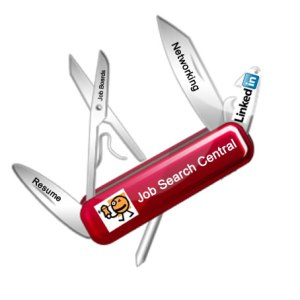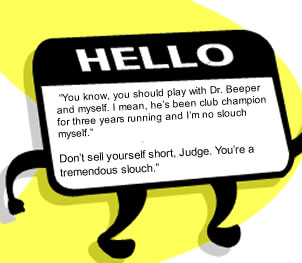Greg Chenevert is one of the most effective Career and Business coaches around. Greg approaches his craft from a very different angle than most coaches which gives his clients a unique advantage in job interviewing, selling or in business dealings in general.
If you don’t believe me that Greg is any different than any career coach, all I can say is “numbers don’t lie”:
Greg has been engaged to teach Career development at a company. His first class of 23, all got placed in 4 weeks. And oh by the way…his second class of 26 all have gotten placed too!
I had a chance to speak with Greg recently about some key aspects of interviewing to get the job you want. His recent Audiobook, 7 Minute Interview provides some indispensable information on how to make yourself the top candidate in the first 7 minutes of the interview, when the hiring manager actually makes their yes or no decision on you.
BillTheRecruiter: What is the most common mistake a job seeker makes that knocks them out within the first 7 minutes?
Greg Chenevert: Bill, job seekers who don’t know or appreciate their audience believe they need to convince managers to hire them and pursue this based solely on technical or intellectual logic. This concept generates a false comfort zone for a candidate, which cascades into series of self-defeating behaviors. One example is the job seeker who explains a technical reason for employment and doesn’t receive the expected feedback will then repeat their statement with greater vigor. Detailed technical descriptions appeal to only a limited group, often not including the HR manager, marketing or other non-technical personnel. Job seekers fail to understand that when they push information they conversely diminish the rapport. They lose the connection with the other person in the room, who is a decision maker for hiring. Without the rapport that is maintained through specific behaviors, everything the candidate says becomes unimportant because the interviewer is no longer listening.
The most effective interviewing method is to maintain and balance rapport while weaving your information into the listener’s context. The combination makes both the job seeker and their information readily understood.
BTR: Are most mistakes ones that the majority of people interviewing for a job would never even realize they are making?
GC: Yes, most people have trained themselves to follow behaviors without conscious examination. They don’t realize or recognize habitual mistakes. For example, everyone goes to an interview wants to be ‘the best person’ for the job, which is the perfect approach. However, upon arrival they discard this motivation and attempt to be the best: medical device domestic distribution manager, the best Java developer, or the best defense software project manager. They should stick to the first statement and be the best person, the individual who listens, engages listeners and is also a competent manager or developer. Job seekers who behave in this fashion are often the hired candidates.
BTR: How important is the non-verbal part of interviewing to the hiring manager’s decision making process?
GC: The past sixty years of research in human communication can be distilled to the following information that every job seeker can use. The words that you speak during an interview comprise 10% of your message, your tone, cadence, and inflections comprise 40% of your message. 50% of the interview communication is body language, including facial responses and projecting emotions through facial movement. Hiring managers use these channels and weightings to take in the candidate’s information and develop a decision.
Job seekers who rely on logic, rhetoric and words alone are at a severe disadvantage. Consider Ben Stein, the man who does the Visine commercials. His television delivery is possibly the baseline of interviewing. Readers might recall listening to his flat delivery, lacking inflection, connection and body language. Imagine listening to his Visine commercials for a half hour, but instead have it as an interview. Is this an effective approach and behavior to assisting a manager to form a positive decision?
BTR: If you realize things are starting off badly, what things does the book tell you that can turn the ship around quickly?
GC: If job candidates follow the steps in the audio book, they will more likely never encounter this problem, because the dialogue shows how interviews should proceed. However, there is a chapter that demonstrates to listeners how to recognize these situations while they are still manageable. They next hear how, through specific steps, to resolve the tensions or misdirection and re-establish the rapport and information flow of the interview.
BTR: Is there such thing as over preparing for an interview? For example too much role-playing, practicing, etc. that may seem like you are just being an “actor”?
GC: We can train easily ourselves; this is part of being human. Everybody can over prepare by adopting a delivery, and effectively training themselves to properly respond in a training situation. The interview is a different emotional context because you’re dealing with strangers and have no control over the direct or follow up questions. Under this stress the job seeker will engage their rehearsed answers as a reaction to the stress, making them sound all the more canned or artificial. Your readers may recall hearing an elevator pitch from a networking meeting that had all the right words, yet was devoid of personal connections. These are similar to the political ads and sound bytes that bombard us during elections. We forget these within seconds of hearing them, because listeners instinctively tune out ‘canned’ messages within seconds. Hiring managers and HR people hear over-prepared statements so frequently that they tune out faster than most. They have trained themselves to recognize and avoid the rehearsed response.
BTR: Is it better to try and answer the interviewer’s questions with a response you think they want to hear, or just go with your “heart”?
GC: This question drives right to the heart of successful interviewing. Interviewing is a process meant to arrive at a mutual fit for the job seeker and the company. Job seekers need to discover two pieces of information: Does the hiring manager believe that I fit this job, and does the job and company fit with me. Responding the way that you think the interviewer wants to hear may answer your first need, but it subverts the second. This is how people end up in their job-from-hell. Employment is a long-term commitment, requiring mutual acceptance. If you answer from ‘the heart’ you will be certain to find what fits and more importantly benefits both you and your potential employer for a long-term engagement.
BTR: I noticed in the sample chapter the second example of responses there was a probing question posed in response to a question from the interviewer, why is that so important?
GC: The open-ended, probing question is another critical element for any successful interview because it allows the candidate to lead the conversation and demonstrate interest. Without these questions to engage the other person during your interview, every job seeker is structuring an interrogation, something that neither of you really wants. The second part of asking the question is to condense your answer, limit your speaking time, and provide a conversational shift to the interviewer. This prevents any confusion and awkward silences between the two of you. When done effectively open-ended questions are a mechanism to bond the two of you into a conversation that builds for a purpose, getting hired.
BTR: After listening to 7 Minute Interview, how easy is it to change your interviewing habits to be more successful in getting that job offer?
GC: Bill, it’s surprisingly easy for job seekers to achieve and retain constructive changes in interviewing behaviors and stand out from the hundreds of candidates vying for the same position. The book shows how to eliminate the emotional and behavioral habits that have destroyed past attempts, while also hearing how to establish winning habits. As a matter of fact, I include an entire chapter that shows some direct, simple exercises. When job seekers that I’ve trained practiced these exercises for a week and used them at the next interview, they changed from also-ran to hired.
BTR: What in general do you want people to take away from 7 Minute Interview?
GC: There are many things in this book that I that can make the difference for people. I want each to get a few tools to fulfill their needs. Interviewing well isn’t mysterious; it is direct and straightforward. That’s important knowledge for readers to understand, and this fact comes out many times through dialogue and examples. Another beneficial take-away is that there are only a few steps that separate success from failure, and these too are readily learned and adopted. Most importantly I want your readers to appreciate the fact that what they learn from this audio book isn’t how to interview well, it is how to converse well with everybody. When they take these conversational and communication skills to an interview, they work. When employees use them at work, they succeed, and when job seekers use them to network, they get results, because these skills motivate people to listen to you.
Again, if you would like to listen to a free sample chapter of Greg’s Audiobook and buy the entire book, it is a great investment to improving your chances of getting the job you want go to: http://www.self-help-books.biz/
 So, you have your workspace and basic job setup well in place. Now you have to start sharpening the tools at your disposal and create some structure:
So, you have your workspace and basic job setup well in place. Now you have to start sharpening the tools at your disposal and create some structure:






